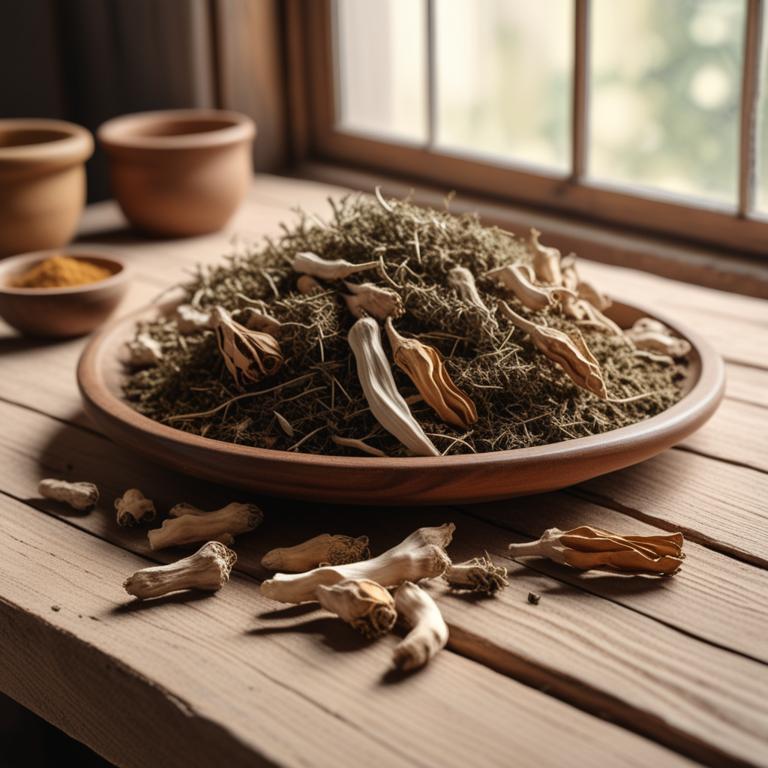Updated: Dec 1, 2024
Throat Irritation Relief: Natural Causes and Effective Medicinal Herbs
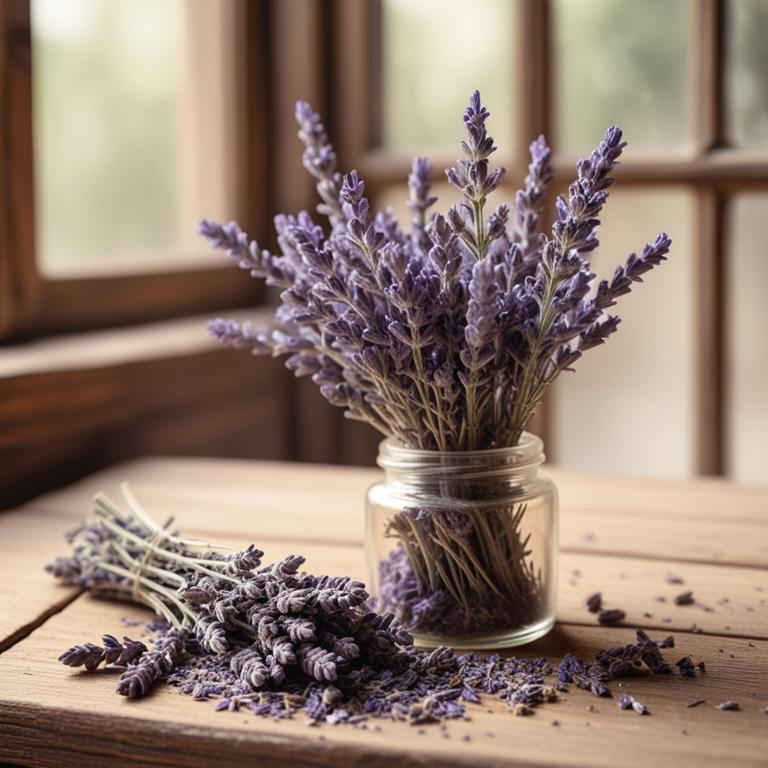
Throat irritation can be a real nuisance, making it hard to swallow, speak, and even breathe.
It's an inflammation of the throat, often caused by a cold, allergies, or even acid reflux. When you have a sore throat, you might feel like you're constantly clearing your throat, and it can be painful to talk or eat. This can affect your daily life, making you feel tired and irritable. Throat irritation can be triggered by a variety of factors, including viral infections, smoking, and even environmental pollutants. Sometimes, it can be a sign of a larger issue, like sinus problems or a respiratory condition.
Fortunately, there are some natural remedies that can help soothe a sore throat. Herbs like slippery elm, licorice root, and marshmallow root have anti-inflammatory properties that can help calm the irritation. These herbs can be made into teas, which are easy to prepare and drink. Simply steep a teaspoon of the dried herb in a cup of hot water, and let it steep for a few minutes. You can also try adding honey or lemon to your tea for extra soothing benefits.
Some people also use lozenges or throat sprays made from these herbs to get quick relief.
Table of Contents
What leads to throat irritation?
The main causes of throat irritation are varied and can be triggered by different factors.
Allergies are a significant cause, as they lead to the release of histamine, a chemical that can cause blood vessels in the throat to swell, resulting in irritation and discomfort. Pollution is another major contributor, as it contains particles and gases that can irritate the throat when inhaled.
Smoking is also a leading cause, as the chemicals and tar present in tobacco smoke can damage the lining of the throat and lead to chronic irritation. Asthma is a condition that can cause throat irritation, as the inflammation and constriction of airways can lead to throat discomfort and difficulty breathing.
Finally, GERD (Gastroesophageal Reflux Disease) is a condition that can cause stomach acid to flow up into the throat, leading to irritation and discomfort due to the acid's corrosive properties.
What advantages can be gained by using herbs for throat irritation?
Using herbs for throat irritation can provide quick relief from discomfort.
These natural remedies can help reduce inflammation and swelling in the throat, making it easier to swallow and talk. They can also provide a soothing sensation, calming the irritated tissue and reducing pain and discomfort.
By using herbs, you can avoid harsh chemicals found in some medications, which can have side effects like dry mouth and drowsiness. Additionally, herbs can be used as a preventative measure to keep your throat healthy, especially during cold and flu season. They can also be used in combination with other treatments, such as rest and hydration, to help speed up the healing process.
Many people find that using herbs for throat irritation is a gentle and effective way to find relief from symptoms and get back to their normal activities.
What are the key medicinal herbs for soothing throat irritation?
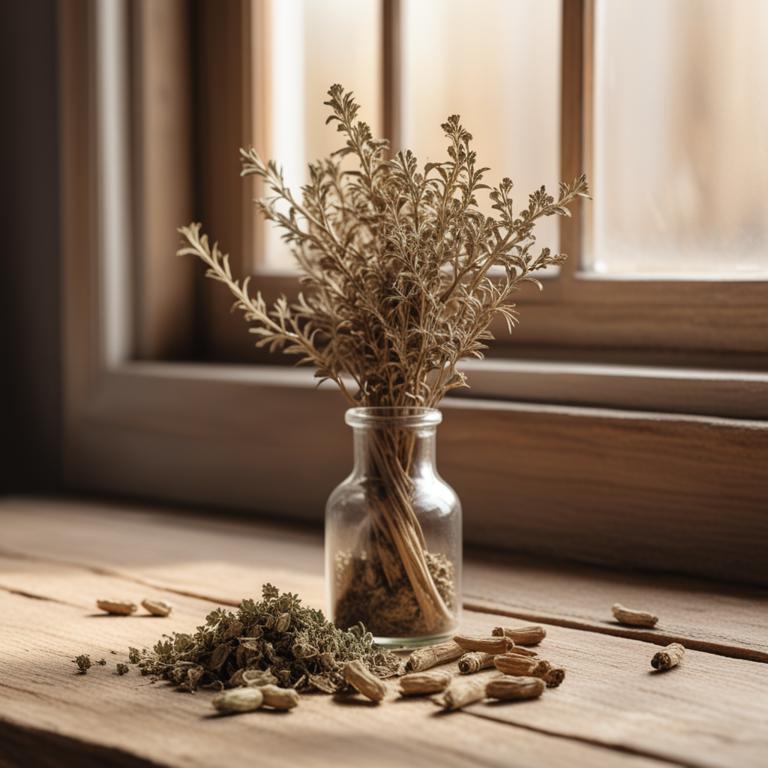
When you have a sore throat, herbs can be a great help.
Glycyrrhiza glabra, also known as licorice root, is a natural anti-inflammatory that can soothe the throat and reduce swelling. It also has antimicrobial properties, which can help fight off infections that may be causing the irritation. Echinacea purpurea, or coneflower, is a herb that can boost your immune system, helping your body to fight off the underlying cause of the sore throat.
Zingiber officinale, or ginger, has anti-inflammatory properties that can help calm the throat and reduce pain. Thymus vulgaris, or thyme, has antimicrobial properties that can help fight off infections, and its oils can also help to open up airways and ease breathing. Mentha x piperita, or peppermint, has a cooling effect that can help to numb the pain in the throat and ease congestion.
These herbs work together to provide relief from sore throats and help your body to heal.
What are the primary herbal preparations used to soothe throat irritation?
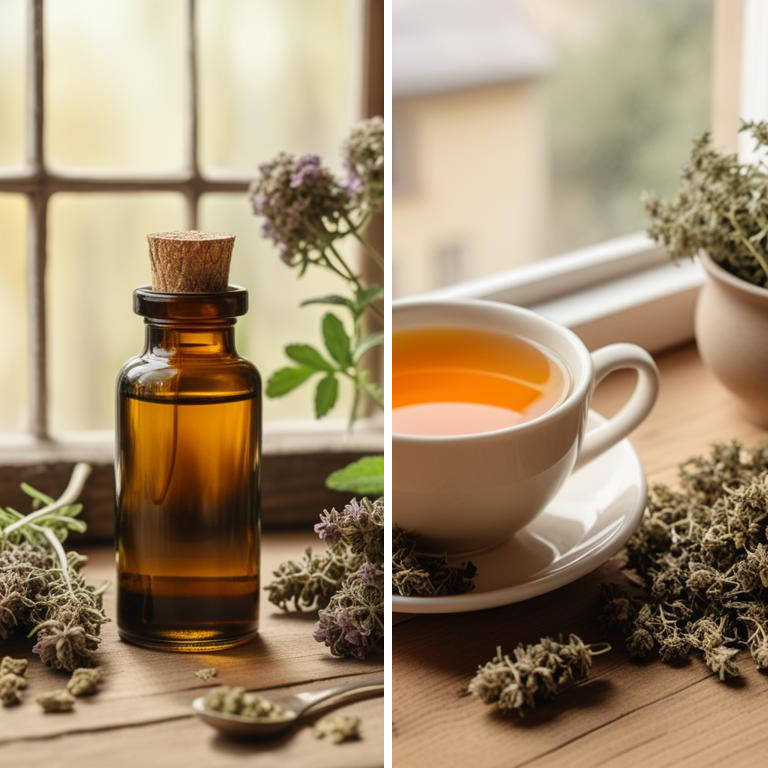
Herbal preparations can be really helpful for soothing throat irritation.
Let's take a look at some popular options. Lozenges are a great way to calm a sore throat - they dissolve quickly in your mouth, releasing a soothing mixture of herbs like slippery elm and licorice root that coat and protect your throat. A throat tincture can also be effective, especially if you're feeling a tickly cough or a scratchy throat. Tinctures are concentrated liquid extracts that you can take under your tongue or mix with water. They usually contain herbs like echinacea, which helps boost your immune system and fight off infection.
If you prefer a more traditional remedy, herbal tea is another great option. You can choose from a variety of herbs like peppermint, chamomile, and sage that have natural anti-inflammatory properties that can help calm your throat. For a more topical approach, you can try an herbal salve - a thick, moisturizing cream that you apply directly to your throat. Salves often contain ingredients like aloe vera or honey that provide a protective barrier and help soothe your skin. Another option is a decoction, which is a liquid extract made by steeping herbs in hot water.
Decoctions are especially good for dry, irritated throats - you can drink them as a warm, soothing drink or use them as a gargle to help calm your throat.
Additional Resources:
Which herbs pose a risk to those with throat irritation?
If you have throat irritation, it's best to be careful with certain herbs that might make it worse.
For example, Eucalyptus globulus, also known as blue gum eucalyptus, has a strong, camphorous smell that can be too intense for an irritated throat. Its essential oils can be quite harsh, and might even trigger coughing or make your throat feel more inflamed. Foeniculum vulgare, or fennel, is another herb to use with caution. Its seeds and essential oils contain compounds that can be quite potent, and might irritate your throat further, especially if you already have inflammation.
Rosmarinus officinalis, or rosemary, is a herb often used to ease breathing, but its strong, pungent aroma can be overwhelming for an irritated throat. Its essential oils might even dry out your throat, making it feel tighter and more uncomfortable. Lavandula angustifolia, or English lavender, is often used for its calming properties, but its essential oils can be quite strong, and might be too much for a sensitive throat. Its drying effects can make your throat feel even more irritated. Cassia auriculata, or cassia, is a herb commonly used in traditional medicine, but its seeds and leaves contain compounds that can be quite irritating to the throat, especially if you already have inflammation.
Its strong, bitter flavor and aroma can be too intense for an irritated throat.
FAQ
Are there any specific herbs that can prevent throat irritation?
Ginger and slippery elm are two herbs that may help soothe throat irritation.
Ginger has anti-inflammatory properties that can reduce swelling and ease pain. Slippery elm, on the other hand, forms a protective barrier on the mucous membranes to calm irritation and promote healing.
Drinking tea made from these herbs may bring relief.
Is it safe to use herbal remedies for throat irritation during pregnancy?
When pregnant and experiencing throat irritation, some herbal remedies might help.
However, it's essential to check the ingredients and potential risks. Certain herbs like slippery elm or licorice root are sometimes used for soothing throats, but others like foxglove or blue cohosh can be hazardous.
Always be cautious and informed.
Are there any herbs that can reduce the frequency of throat irritation?
Ginger and slippery elm are two herbs that may help reduce throat irritation.
Ginger has anti-inflammatory properties that can soothe the throat, while slippery elm forms a protective barrier to shield it from irritation.
Drinking ginger tea or taking slippery elm supplements might provide some relief.
Related Articles
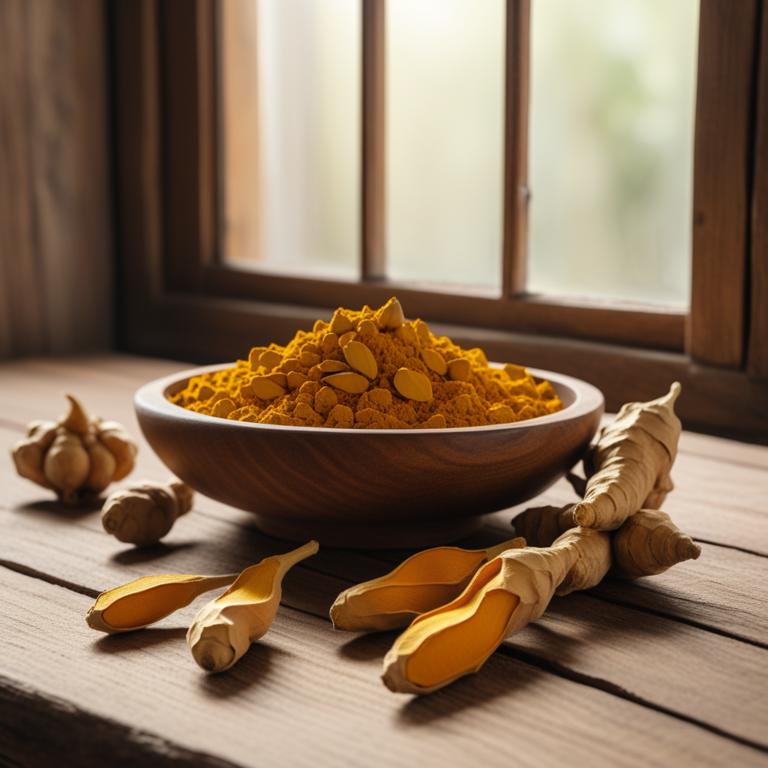
Emphysema Causes, Symptoms, and Herbal Relief Options
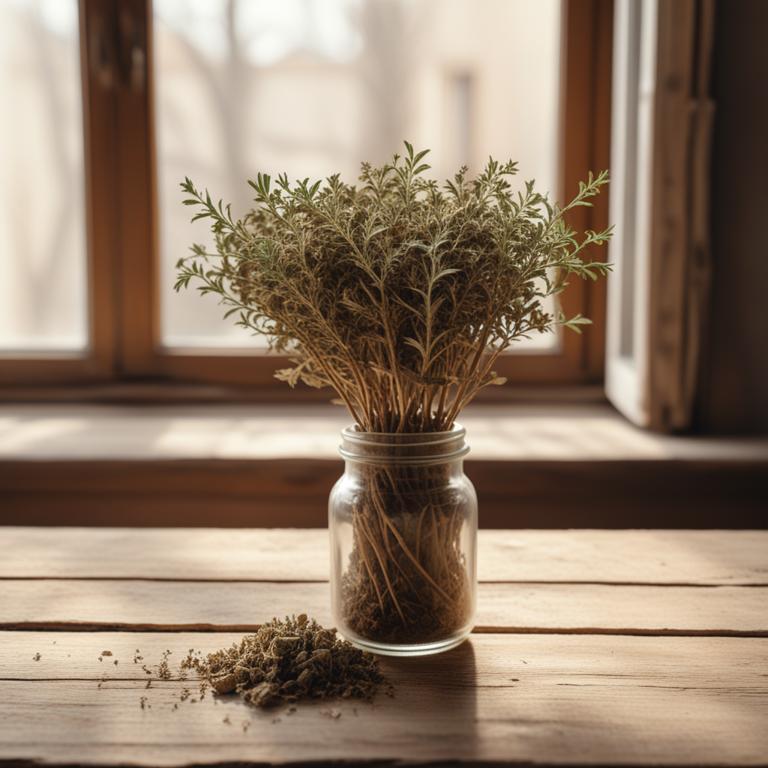
Banish Dry Throat: Exploring Medicinal Herbs and Herbal Preparations for a Soothing Solution
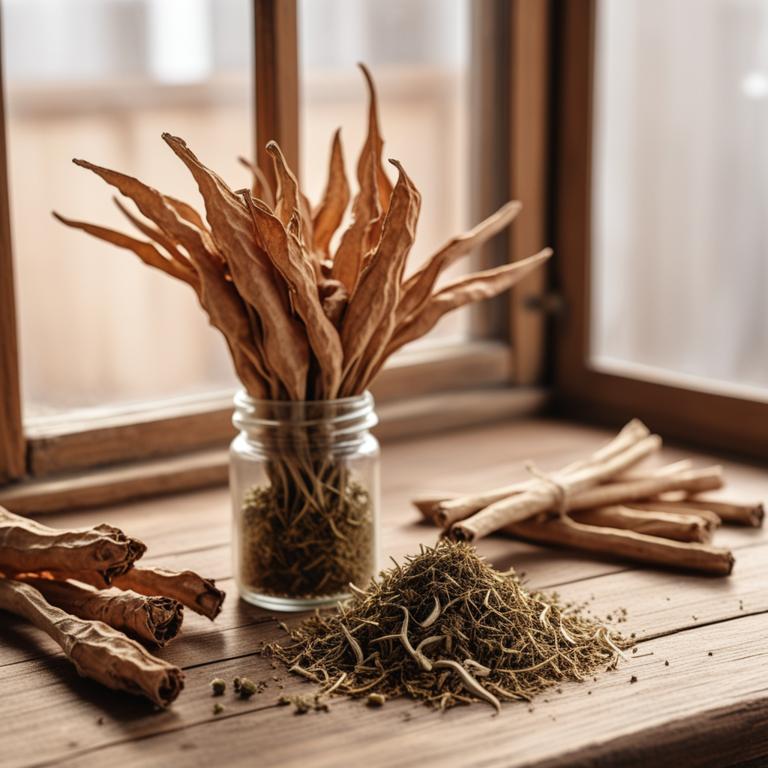
Cough Causes and Natural Cures: The Power of Herbal Preparations
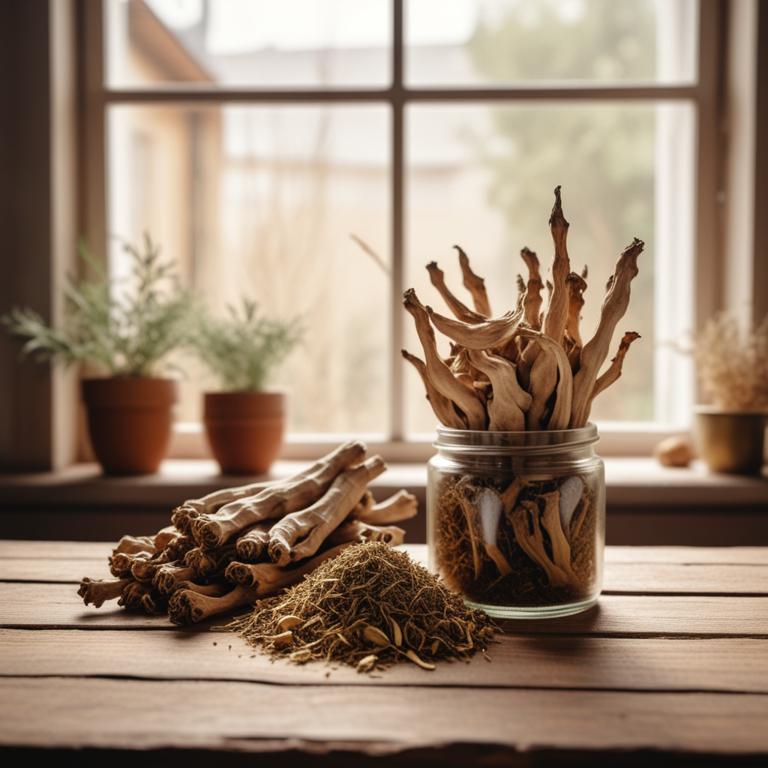
Understanding Chronic Bronchitis: Causes, Medicinal Herbs, and Herbal Remedies
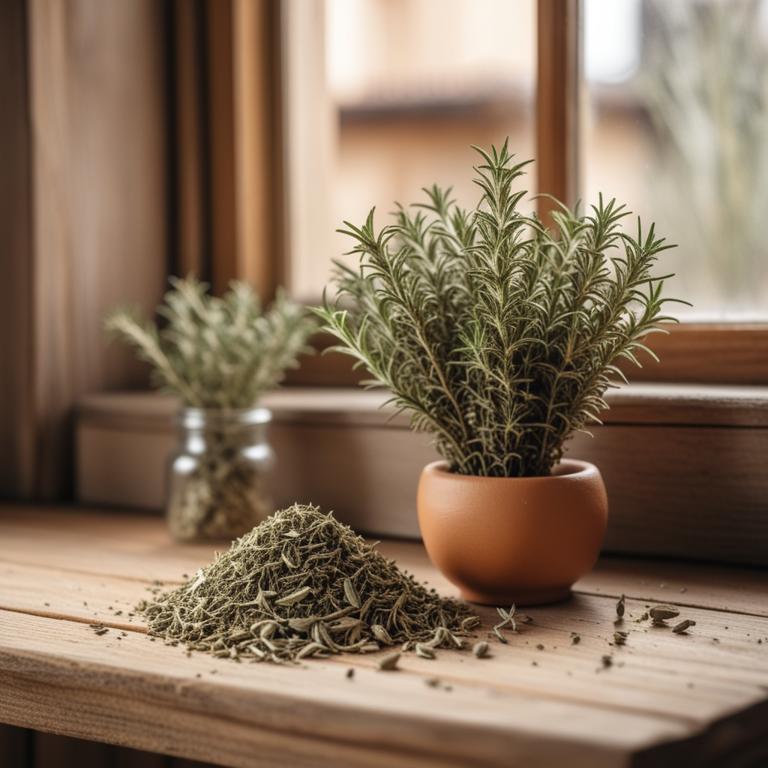
Causes, Medicinal Herbs, and Herbal Remedies for Shortness of Breath
